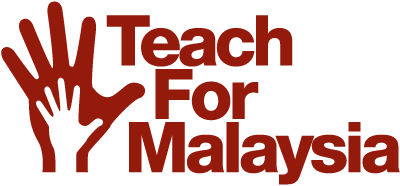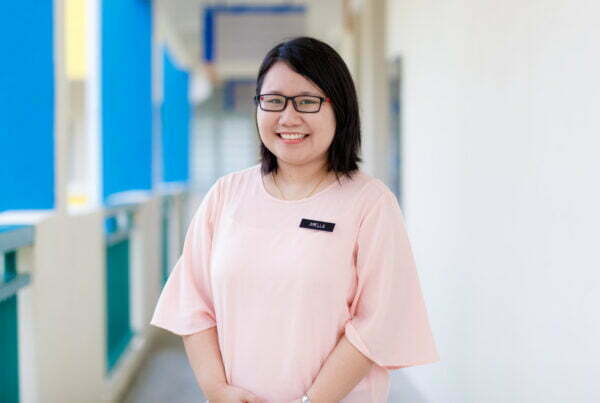“I’m two totally different people inside the debate hall and outside of it.”

‘Shy’ isn’t an adjective immediately associated with debaters. Especially not when thinking of state champions. But that it is precisely how members of the winning team of Sarawak’s 2016 secondary school-level English debate competition describe themselves.
“I remember stuttering and making a fool of myself when I met the other debaters. There were even times when I felt underestimated because of the way I presented myself.” – AD, 17
In years past, their school had not advanced past the district level. 2015 Fellow Hamsaveni Vigneswararao and her colleague, Alex Wong, sought to push the team further than they’d ever gone.
They recognised that the school wasn’t bereft of raw talent. It just hadn’t been harnessed. For some of the five girls who eventually joined the team, their familiarity with debate was limited to friendly after-school arguments as they waited for their bus to arrive. Others preferred to tussle with ideas found in books.

The team thinks through their arguments.
Drawing on her own experience as a school debater, Hamsa supplemented her team’s abundant intellect and budding public speaking skills with lessons on techniques and strategies central to the sport. Within a year, things had changed.

The hall begins to heat up.
“Debating makes me feel like I’m intimidating. Being a very shy child, I enjoy feeling powerful in a debate because it’s the first step to victory.” – CA, 16
Outside the debate hall, they were underestimated. Inside it, they swept past regional and state favourites and qualified for the national championship. Although they did not place at the nationals, a foundation had been laid.
————————–
That foundation proved its sturdiness when we engaged the team in a pseudo-debate. We asked three of them (who are about to sit for their SPM exams very soon!) if they agreed with the following:
Standardised school examinations are the best measure of future success in university and the workplace.
They tore into the motion with little inhibition.
“Absolutely not. I do not believe that they predict success in university or in the workplace. I believe that a standardised exam is just a set of questions that tests your ability to memorise. Sure, a student who studied and who did workbook exercises on a particular subtopic would be able to do it, if the way the question is structured is similar to the previous exercises done. However, if you adjust the question just a little bit, then there is a high chance that the student would not be able to answer the question. This is simply because they don’t truly understand the concept and the method for solving this problem. What matters once you get out of school and into working life or even university is your ability to be flexible. To be able to apply the concepts that you have learned no matter what the situation is. And the only way this can be done is through understanding, making mistakes and learning from them, which is something that standardised school exams do not encourage.” – AP, 16
“Standardised examinations are just not adequate for life outside of school because of the lack of emphasis on soft skills. Real world skills allow you to communicate with people and to handle daily situations. Soft skills actually make you stand out from the rest. People with soft skills are your go-to people for efficient leadership and management. They realise the importance of networking and making connections. These are the changemakers. These are the moneymakers. So to actually say that if you only do well in your exams, you’ve got everything else covered, that is when you start failing at everything else.” – CA, 16
They were unmoved when asked to consider if the inclusion of “higher-order thinking skills” (HOTS) questions in standardised examinations sufficiently distinguished students capable of critical thought from those who relied solely on rote memorisation.
“For the majority of these HOTS questions, it is not so much what you answer, but how you answer. In other words, it’s the technique of answering that examiners frequently look for and if a student can’t nail that down, they’ll get it wrong regardless of whether they got the answer right. That’s why we have all these workshops for teachers and students alike to help them learn the techniques to answer standardised exam questions. This further cements the case that even if a student knows their material well enough, they still might not do well because they lack the answering technique, techniques which are usually only employed in standardised exams and are not relevant in the workplace or university.” – AD, 17
They were equally adamant that the difficulty in assessing soft skills accurately and impartially was not an argument in favour of measurable exam results.
“I don’t deny at all that it is difficult to accurately and objectively measure soft skills. However, let’s remember that standardised exams are extremely limited in what they assess – the student’s mastery of the material. Though the knowledge of core concepts is important to a student and eventually an employee, what separates the student who can score straight As on standardised exams from other students alike is whether they are able to apply that knowledge in a creative and intuitive way, which is something that is not taken into account in standardised exams at all. If the question was ‘Is standardised testing the best measure of a student’s knowledge in a certain field?’ my answer would be, ‘Maybe.’ But the question today is ‘Is standardised testing the best measure of success in the future?’ and that’s when we have to make a clear distinction between the student’s mastery of the material and their future success because a successful employee or student does not boil down to strictly academic performance.” – AD, 17
————————–

Champions of Sarawak.
These unassuming girls from an unheralded school in coastal Sarawak provided ample proof for why their team merited being state champions. Shy stutterers before debate, they are now impassioned elocutionists, showing that winners can come in all forms if they are given the right opportunities.
Hamsa believes bigger things are about to follow.
“I’m 100 percent confident that my school will establish itself as a debate powerhouse from now on.”
There’s little reason to doubt that.
AD, AP and CA are upper secondary school students in Miri, Sarawak. They have been competitively debating for almost a year. They enjoy debating as it broadens their knowledge, expands their horizons, and allows them to express ideas that are occasionally provocative but need to be said all the same.
Hamsaveni Vigneswararao is a 2015 Fellow. She graduated with a Bachelor of Medicine, Bachelor of Surgery from Xi’an Jiaotong University.
–





